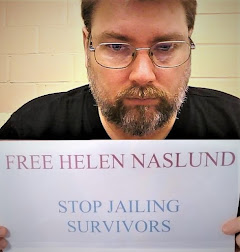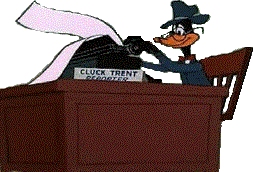I spent the recent Family Day holiday with a family whose friendship I deeply cherish, a privileged dinner guest in their delightful home. The son, previously referred to here as Gifty McBrainchild and deserving a far better alias, is clearly a product of his parents. Like him, they possess a grounded intelligent calm sensibility and deep capacities for kindness, sensitivity and empathy. And the co-mother previously referred to here as the Dog Whisperer also deserves a better alias. I've never been so stuck coming up with appropriate nicknames.
It is almost astounding to find three people of such excellent relatively-uniform quality comprising one family. Needless to say my heart is very fond of them.
What I am not fond of, is my own behaviour when I'm around them. I do not leap full into poetic mode as I do around my "inner circle" associates nor do I consistently weave more normal but productive conversation in and out of "poetic lite" mode as I do around my "outer circle" associates - both circles being of fairly elite status by my accounting, by the way. And I fail to do this despite my regard for this family's individual intelligences and mental courage. I suspect they would totally qualify for poetic conversation (that which is fully geared toward improving the living experience of ourselves and our society and which rises above the tyrannies of appearances, normalcy and instinct) but it is simply not our habit. We met in the context of a larger group and an all-ages social environment (NaNoWriMo). And by the way, if my references to circles and poetic modes smacks of conceit or pretentiousness I submit that this line of thinking has only arisen out of my need to quantify my activities and endeavours as I track my 2013 productivity in every way possible; a necessary task if I am to properly understand my potential as a poet, writer and musician and to properly adjust my life goals, frankly, before it's too late.
I am accustomed to being a relatively quiet presence within a group, waiting for the opportunity to offer a useful, and usually misunderstood, perspective when conversation gets too dull (dull as in prone to normal illusions and superstitions, not as in sedate). This sort of dullness rarely arises when I am with this nicknameless family. Rather they tend to be so politely reserved that I get tempted into making the lion's share of conversation, which I despise of myself and which, mysteriously perhaps, I tend to deliver very poorly and ineloquently. I catch myself telling the lamest of stories and doing so awkwardly and without brevity. I frankly embarrass myself - or rather it is worthy of embarrassment while I've thankfully lost most of my capacity for suffering embarrassment (score a point for the poetic process).
Though I truly have no agenda with regards to changing the patterns of our friendship or moulding it into a poetic one, there is certainly that desire, because as always I just want to maximise my usefulness to people, and given the quality of their minds, they're worthy of getting the best me.
I suspect that the main thing that trips me up is the knowledge that young Gifty - the same age as Neo, is technically entering a brief chronological hot zone before the societal structures of his life-stage begin making all manner of traps available to him; traps that will tug at him to make all sorts of perception-destroying investments. In other words, if he is potentially a second Neo, I probably would need to break through soon, and I lack any guile required of some sudden infiltration. I drop hints to him and the folks and wait to see if they germinate, but the reality is probably such that they have not garnered a great deal of trust in me, or at least for my poetic understandings; what few they've had the opportunity to glean, and only in isolation, missing the beauty in how they thread together.
Comparing Gifty to Neo is very interesting: both in grade ten and both wildly, spectacularly advanced yet in such different ways. Gifty is academically gifted beyond the definition of gifted, mastering all things scholastic. Neo scores excellent in the subjects he cares for and not particularly well in the subjects which bore him or which tip his keenly-tuned bullshit meter.
Presumably Gifty is off the charts on all measures of intelligence the academic community can measure, while Neo, also deeply intelligent, boasts an innate wisdom beyond the reach of probably 99% of the population over their lifetimes, let alone their first sixteen years. It's particularly apparent in his justified mistrust for all the societal power-structures which control the lives of his peers. He has utterly striking capacities for honesty, humility, courage and curiosity; Gifty likely too, though I haven't had as much opportunity to observe.
Both experience a profound kind of loneliness, I think, not for lack of company, but for lack of being understood, much like myself.
Gifty, with perhaps the edge in the empathy department, seems to have long identified with his premier goal in life; to be a veterinarian Neo has an almost hopeless view of the future, wishing mostly to pursue his music which is frankly difficult for sixteen year-olds to do, tragically, given the familial and educational parameters forced upon them. Despite this, Neo has produced multiple music albums of striking originality and genius under the band name Lucid Boots, music on the frontier of structure and priority, possibly beyond the grasp of most of the pop-music-pabulum-fed population. Gifty plays trumpet in the school band. Gifty seems steady, safe and eager to please. Neo is the adventurer.
Gifty plays normal-boy sports and video games and much respects his excellent parents. Neo hangs with other young musicians and a certain aging poet and avoids his folks at every opportunity. They've never heard even one of his songs.
It's interesting that with all the people I know well, the majority in their forties and fifties, it is from the rarer younger set that the "inner circle" comes from; all in their teens, twenties or early thirties.
If I seem to be scoring Gifty and Neo against each other, it's only as a curiosity. I have different relationships with them and always will. With Neo I lay everything in the open. Everything. I regard him as a poetic apprentice (and a music mentor); a relationship requiring pristine openness; eclipsing even that with an immediate family member or lover.
With Gifty, it remains to be seen how we shall relate going forward, but given the opportunity should it arise, I plan not to lay out answers, but to nudge him in poetic directions, so that he shall either find the same answers for himself, or else challenge me where our answers differ, which is valuable to me and truly more in line, as far as I know, with the proper historic poetic approach.









.jpg)


























